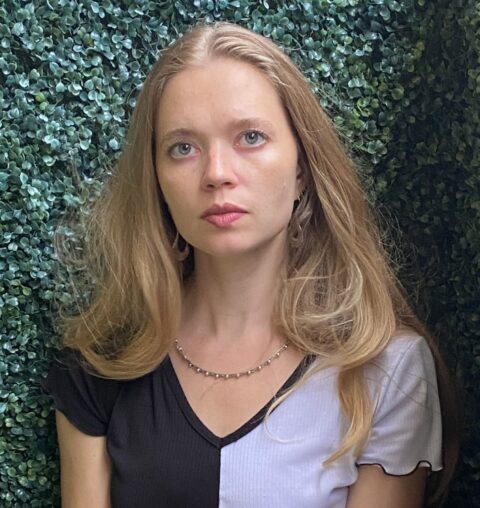
In 2024 SmokeLong hosted our second SmokeLong Workshop Prize competition. Our workshop participants reported almost 300 publications to us before November 1, 2024. In 2025, we’ll be featuring one writer each week from The SmokeLong Workshop Prize long list. It’s an excellent series of interviews, each grappling with questions about workshopping, giving and receiving feedback, and the publication process. If you are a previous or current SmokeLong workshop participant and you have ultimately published something you began in a SmokeLong workshop, remember to enter The SmokeLong Workshop Prize competition. This free-to-enter competition is on our Submittable page.
__________________________
An Interview with Kristi Ferguson — “How to Eat Pitanga” published in Tiny Molecules
What do you remember about the workshop where you wrote this story? What was the prompt or writing task that led to this story?
“How to Eat Pitanga” came from my first-ever submission to the SmokeLong Summer workshop, titled “We Are All WIPs.” The prompt asked us to share a work in progress and to consider what we wanted to focus on when giving feedback to the work others submitted. The piece was titled something else when I first submitted it and was a combination of themes and subjects that I had been experimenting with for a long time. The feedback I received from other SmokeLong participants was crucial in shaping the final version of “How to Eat Pitanga”; I went from including several different subjects to narrowing the narrative focus to stay on the single motif of the pitanga, which was the core image.
Peer-review feedback is always full of surprises. In general, what kind of feedback do you find helpful? What kind of feedback do you find less helpful?
The feedback I find most helpful is feedback that pinpoints some element of what my writing is doing or what it is about, and then specific advice on where the work is failing and actionable suggestions on how it could better accomplish what the reader believes it is meant to accomplish. This is helpful to me in two ways: first, if the reader’s perception of what the piece “should” be doing resonates with what I want it to do, that makes me feel like the piece is understood and that their advice might really be helpful. Second, if the advice is specific and actionable, I can decide fairly quickly whether I can and want to implement it. This also works the other way: if the reader’s impression is not what I’m trying to accomplish, then I know a) my existing approach is likely not working effectively, and b) their advice may not resonate because the themes I’m hoping to convey are not coming across.
The feedback I find least helpful is vague or abstract feedback, that says “this doesn’t work for me” or “not sure about this” but doesn’t express why. Similarly, wishy-washy feedback that says “maybe change this, but I don’t know” is not very helpful. I know that when I first started giving feedback to others my own feedback was often vague and uncertain; one practice that helped me was to start by outlining my understanding of what the story was about, that in itself can be very helpful to a writer and it helped me as a reader to begin to have more actionable suggestions for edits.
To how many places did you send this story? Can you tell us a little about its journey to publication?
I keep good submission records so I can say I sent this story to fourteen places total over about seven months of submitting. It received eleven declines and I withdrew it from two spots once it was accepted by Tiny Molecules. I started with five journals and then sent the story to a couple additional journals each month. I had the opportunity to read “How to Eat Pitanga” at several readings, including a SmokeLong workshop reading, and the reception at those events made me feel like the piece was ready which kept me looking for a good home rather than further revising (which I often do). I’m ecstatic that Tiny Molecules selected it for publication, I’ve long admired the work that they publish and I’m thrilled and grateful to have this piece that I’m so proud of on their pages.
What is your advice to someone considering taking part in a peer-review workshop?
I can’t recommend it enough. Peer review isn’t just about getting feedback. Receiving feedback on your own writing is tremendously helpful but peer review also helps you identify—through giving feedback to others—what you like in a story, what it means for a piece to be “working,” and how to correct what doesn’t work. I learn so much through participating in workshops with others, how to be a better reader, how to better understand different aspects of narrative structure, and how to be a better editor of both others’ writing and my own. It’s well worth the time and effort.
Read “How to Eat Pitanga” by Kristi Ferguson in Tiny Molecules.
________________________
Kristi Ferguson is a researcher and writer. Originally from Brazil, she currently lives in Arlington, Virginia. Her writing has most recently appeared in Bellevue Literary Review, JMWW, MAYDAY, and elsewhere. She has received scholarships from the Kenyon Review Residential Writers Workshop and the Sewanee Writers’ Conference.
